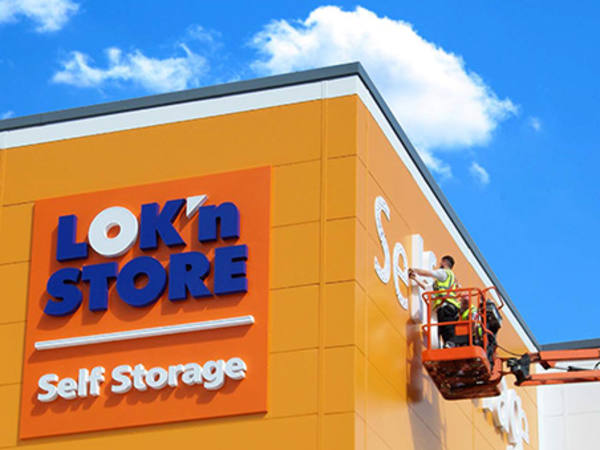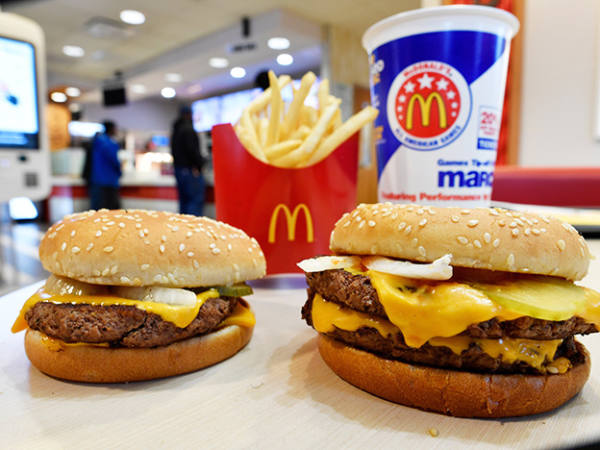Big Tech’s results at the beginning of the month signposted a shift in the advertising industry. On the day of its fourth-quarter (Q4) 2021 results, Meta (US:FB), formerly known as Facebook, lost $230bn of its market value, the biggest one-day drop for a single company in US history. It warned that privacy changes on Apple’s App store and “macroeconomic challenges like cost inflation and supply chain disruptions” would generate advertising headwinds in the coming year.
CentralNic (CNIC) chief executive Ben Crawford told Investors' Chronicle that while Facebook's earnings had been a "shock", the sector overall was still in a very strong place, with other types of ad spending the first to go when budgets are slashed.
"All those companies that took out crypto ads during the Super Bowl will see zero effect on their businesses," he said. "Businesses generate the vast majority of their customers online and want to know the return on investment for their spending."
Analysts dropped Facebook’s 2022 advertising revenue consensus forecast from $102bn down to $95bn following its fourth-quarter (Q4) results announcement. This bearishness was in stark contrast with the strong advertising performances from rivals Alphabet (US:GOOGL) and Amazon (US:AMZN). Google’s advertising revenue increased 32 per cent to $61.2bn year on year in Q4, while Amazon’s increased 32 per cent to $9.72bn.
Facebook squeezed by Apple and TikTok
Google and Amazon could shrug off Apple’s privacy changes, unlike Facebook, because they both rely on their own data. Google and Amazon know what people want to buy because customers search for it on their websites. Facebook, however, is not an ecommerce platform, so it needs to collect user data to build a picture of what people want to purchase.
Snapchat (US: SNAP) is also facing the same headwinds caused by Apple’s privacy setting, with its advertising revenue missing analyst expectations in the third quarter of last year. It managed to offset this thanks to increased daily active users and forecast 2022 Q1 revenue of between $1.03bn and $1.08bn, ahead of the $1.01bn analyst forecasts.
As well as its ad sales drop, Facebook registered a quarter-on-quarter decline in daily active users. Teenagers are increasingly spending time on TikTok, owned by Chinese giant ByteDance, which uses short video reels rather than focusing on still images and stories, as Instagram has historically done.
Instagram has now released its own reels product. However, Meta boss Mark Zuckerberg is aware that TikTok has jumped ahead of Facebook. “We face a competitor that is a lot bigger [in terms of Reels] so it will take a while to compound and catch up there,” he said on the Q4 analyst call. Reels also monetise at lower rates than feeds or stories, so even if Facebook can outcompete TikTok, advertising margins will shrink.
Proprietary profit
It is not just Google and Amazon that have benefited from this shift away from the third-party data advertising model. CentralNic, which started out as a seller of domain name subscriptions, has now added a fast-growing marketing business. It started the marketing business in 2019 and it now makes up over half of the total revenue. The marketing operation makes use of CentralNic's visibility of all the traffic heading to its domain names and then employs AI software to match up the buyers and sellers of advertising.
In a recent trading update, management said revenue was materially ahead of analyst expectations for full-year 2021 and this was largely driven by the performance of its online marketing segment. Since October, analysts have improved their 2022 EPS forecasts by 11 per cent from 8p to 8.89p.
Branch, a California based advertising technology start-up, has also just raised $300m to give it a $4bn valuation. Branch enables businesses to measure their ad performances without relying on Apple’s third-party data. It clients include Reddit, Buzzfeed, Airbnb and Instacart.
Headwinds mounting
Despite the ex-Meta bullishness, there is a chance that the whole market could shrink in the coming year. The “macroeconomic challenges” referenced in Meta's results would hit all advertising businesses, regardless of how they choose to target customers.
Marketing budgets are often the one of the first costs to be cut during times of economic uncertainty. Gartner’s CMO Spend survey showed that marketing spend as a percent of revenue fell to 6.4 per cent in 2021. This was a 3.6 percentage point drop from 2020 and 5.7 percentage points below 2016.
Digital advertising has grown in this time, however. In 2021 revenue grew by over 30 per cent and is expected to rise 13.5 per cent in 2022, according to research from GroupM. Digital advertising now accounts for 64.4 per cent of the total market, up from 52.1 per cent in 2019.
This is an industry in transition: after Apple's changes to third-party data rules that hit Facebook, Google will follow suit next year. This is subject to testing and sign-off by the UK's Competition and Markets Authority (CMA), and the regulator has received a promise from Google that there will be "no data advantage for Google advertising products", and that it would not build its own trackers to follow people around the internet.
Companies are already moving to survive in this new world with fewer third-party cookies. CentralNic has just bought Fireball, a German search engine that will increase its "portfolio of privacy-focused solutions".







